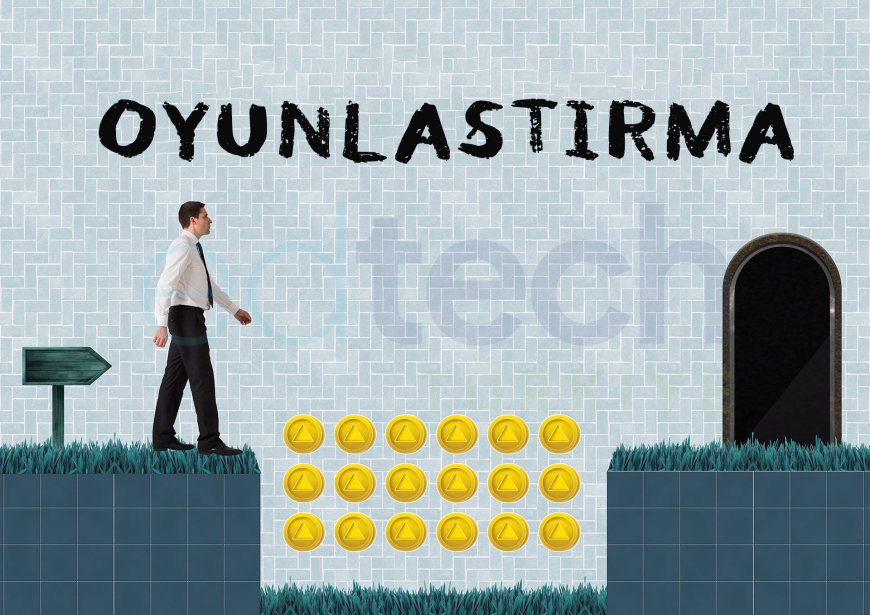Enhancing Learning with Gamification and Game-Based Tools
Gamification is transforming education! Discover how reward systems, game-based learning solutions, and interactive tools enhance learning engagement and knowledge retention in 2025.

As we enter 2025, education and corporate training are rapidly evolving, and gamification has become a key strategy for boosting learner engagement and improving knowledge retention. Traditional learning methods often struggle to sustain motivation, whereas gamification integrates game mechanics into the learning experience to create a more interactive and engaging environment.
In this article, we explore the benefits of gamification, the role of reward systems in motivation, the impact of game-based learning solutions in software, and the key differences between gamification and game-based learning.
The Role of Gamification in Modern Learning
Gamification involves incorporating elements like points, badges, leaderboards, and challenges into educational experiences. This method leverages both intrinsic and extrinsic motivation, making learning more enjoyable and encouraging sustained engagement.
In 2025, educational institutions and corporate organizations increasingly adopt gamification to enhance eLearning, professional training, and skill development programs.
A well-structured gamification strategy:
- Encourages competition and social learning
- Promotes goal-oriented behavior
- Improves course completion rates
- Enhances knowledge retention and real-world application
Additionally, gamification aligns with digital transformation initiatives, making learning more accessible via mobile apps and interactive platforms.
Reward System Gamification: Boosting Motivation and Performance
A well-designed reward system plays a crucial role in motivating learners by acknowledging achievements and reinforcing positive behavior.
Some common gamification-based rewards include:
- Virtual badges and certificates
- Point-based progression systems
- Real-world incentives (discounts, exclusive privileges, etc.)
Psychological studies indicate that rewards trigger dopamine release, increasing learners’ sense of accomplishment and motivating them to continue.
For example:
- Corporate training programs use level-based progression, allowing employees to unlock new learning opportunities as they advance.
- Students stay committed to learning through structured reward systems that guide them step by step through their coursework.
Game-Based Learning Solutions in Software
Game-based learning solutions involve interactive simulations and serious games designed explicitly for educational purposes. Unlike gamification, which enhances traditional learning with game mechanics, game-based learning incorporates learning objectives directly into gameplay.
In 2025, AI-driven game-based learning platforms are becoming more prevalent, offering:
- Coding simulation games
- Virtual science laboratories
- Language-learning applications
Companies also integrate gamified training software for onboarding, compliance training, and professional development. By using realistic scenarios and interactive challenges, employees gain practical experience in a risk-free environment.
Furthermore, Virtual Reality (VR) and Augmented Reality (AR) are revolutionizing game-based learning, creating immersive learning experiences that significantly boost engagement.
Gamification vs. Game-Based Learning: Key Differences
While both gamification and game-based learning aim to enhance education, they differ in their approaches:
- Gamification: Applies game mechanics like scoring, progress tracking, and leaderboards to traditional learning methods to increase engagement.
- Game-Based Learning: Uses actual games to deliver educational content, allowing learners to acquire skills through gameplay and interactive experiences.
Understanding these differences helps organizations select the right strategy based on their educational goals.
The Science Behind Gamification and Knowledge Retention
Gamification is highly effective because of its impact on cognitive functions.
Educational psychology research shows that learning is most effective when it involves active participation and positive reinforcement. Gamification achieves this by transforming passive learning into an interactive experience.
Gamification is supported by several learning theories:
- Self-Determination Theory (SDT): It increases intrinsic motivation by fulfilling the psychological needs of autonomy, competence, and social connection.
- Operant Conditioning: Reward-based learning reinforces positive behaviors, making learners more likely to engage with content actively.
- Cognitive Load Theory: Breaking complex topics into smaller, gamified elements reduces cognitive overload, making learning easier to absorb.
By integrating these scientific learning principles with digital innovations, gamification ensures better knowledge retention and real-world application.
The Future of Gamified Learning in 2025 and Beyond
- AI-powered personalized gamification models
- Enhanced AR/VR-driven immersive learning experiences
- Blockchain-based digital credentials and verifiable skill badges
As technology evolves, gamification will continue to shape education and corporate training, making learning more engaging, accessible, and efficient.
Real-World Applications of Gamification in Learning
Gamification is widely adopted across multiple industries:
- Higher Education: Universities integrate gamified platforms to increase student engagement and foster peer collaboration.
- Corporate Training: Companies implement gamified eLearning programs to improve employee onboarding, compliance training, and skills development.
- Healthcare Training: Medical professionals use simulation-based gamification to practice procedures and enhance decision-making skills.
- Language Learning: Platforms like Duolingo leverage gamification techniques to encourage daily engagement and structured learning progress.
The increasing adoption of gamification across these industries highlights its effectiveness in various learning environments.
Gamification for Interactive and Retentive Learning
Gamification is revolutionizing education by making learning more engaging, interactive, and effective.
By integrating reward systems, game-based learning solutions, and interactive engagement mechanics, organizations can improve learner motivation and knowledge retention.
At EdTech Türkiye, we encourage educators and businesses to embrace gamification as a powerful tool to create immersive and effective learning experiences. ????????????